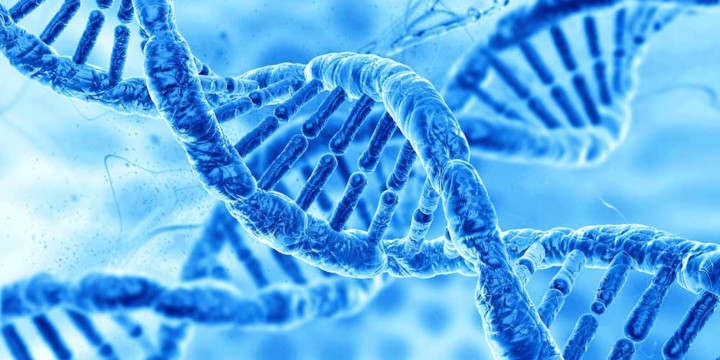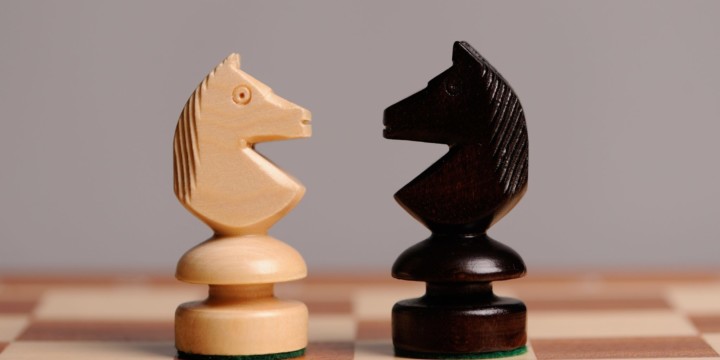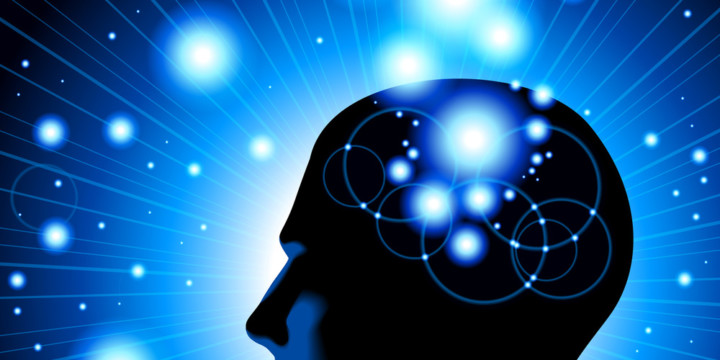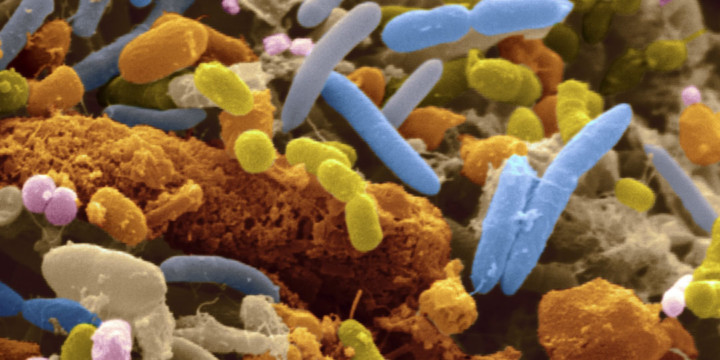Physiology of Alzheimer’s Disease
Alzheimer’s is the most common form of dementia that causes loss of cognitive functions such as remembering, thinking and reasoning. It is a progressive disease that worsens with time. Generally, the disease strikes the persons above 60 years of age but there are a few cases of early onset of Alzheimer’s disease as well. It is believed that the onset of disease starts decades before first symptoms appear. The immediate cause of the disease is the abnormal deposits of proteins called amyloid plaques and tau tangles in the brain that causes the once-healthy neurons to stop functioning and die thereby causing the shrinkage of the brain.
Symptoms
The symptoms vary from mild to severe as the disease progresses. Some of the symptoms are given below
- Searching for words while speaking
- Confusion, disorientation and getting lost in familiar places
- Loss of memory that worsens over a period of time
- Problem with speech and language
- Spatial Issues
- Inability to distinguish colors
- Loss of Judgement
- Inability to perform day to day functions
- Difficulty planning and taking decisions
Causes of Alzheimer’s disease
The exact causes of Alzheimer’s disease are not known. There are many risk factors that may increase the chances of getting Alzheimer’s. These risk factors include
- Advancing age. People above 60 years are more at risk.
- Family history and genetics especially in cases of early onset of disease
- Severe head injury
- Lifestyle factors and conditions such as smoking, obesity, high blood pressure, high cholesterol, high insulin, cardiovascular diseases and diabetes
- Environmental factors such as pesticide and pollution
- Down Syndrome
Treatment in Allopathy
Presently there is no cure for Alzheimer’s. The treatment focuses on helping people to maintain mental function, manage behavioral symptoms, and slow or delay the severe symptoms of the disease. Drugs are given to maintain cognitive functions. But these drugs may either not work on all patients or lose their effectiveness over a period of time.
Alzheimer’s and Ayurveda
Science has shown that chronic conditions such as Alzheimer’s take decades to develop and therefore it is important to take preventive actions such as cleansing, detoxification and rejuvenation of body organs on a regular basis.
As per Ayurveda. Alzheimer’s disease is a geriatric disease. It is primarily characterized by the catabolic effect of vata dosha and the entire treatment in Ayurveda is to minimize the harmful effects of vitiated vata and to bring balance in the body and mind.
Treatment in Ayurveda
Since the disease is associated with the presence of plaques or neuritic or granular vascular degeneration in the hippocampus area of the brain, the first step is the detoxification of the body.
Use of Sneha Dravya (unctuous substances like oils and ghee) for external application and internal consumption is recommended in Alzheimer’s. These Sneha dravyas help in the pacification of vata and slow down the further degeneration. Specific therapies such as Shirodhara, Shirobasti, Shiroseka and Shiro abhyanga are recommended along with full body massages and oil application.
Nasya or Nasal Therapy is also widely used in treatment in which medicated oils are administered through the nasal passage. It is a simple method to deliver the therapeutic agents to the central nervous system.
Use of nervine tonics such as Brahmi(Bacopa monnieri) and Shankhpushpi (Convolvulus Pluricaulis) helps in improving memory and cognitive functions.
Mandukaparni (Centella Asiatica) is an important herb that revitalizes the nerves and brain cells.
Guduchi ( Tinospora Cordifolia) and Jatamansi (Celastrus Paniculatus) help in improving cognitive functions in age-related dementia.
Turmeric (Curcuma longa) has an excellent antioxidant quality that makes it a potent neuroprotective herb. Medhya Rasayana is prescribed in this condition.
Ashwagandha( Withania Somnifera ) is another potent herb that is used in the treatment of Alzheimer’s and many kinds of research have shown that ashwagandha can inhibit the formation of beta-amyloid plaques and improve cognitive functions.
Apart from this Ayurveda emphasizes on a balanced diet, vegetables, fruits, whole grains, pulses and high-quality meat. Yoga, Pranayama, and meditation form the integral part of the regimen.
Overall Ayurveda is very effective in controlling the symptoms and preventing the worsening of cognitive functions.
Alzheimer’s and Naturopathy
Naturopathy takes an integrated approach to treating Alzheimer’s disease. It looks at detoxification and rejuvenation as a part of the treatment.
Treatment in Naturopathy
The first step involves various ways of fasting to reduce the toxin and calorie burden on the body. A low-calorie diet is said to increase the cognitive functions.
Alzheimer’s is said to be a diabetes of the brain and there is a correlation between insulin resistance with degeneration in the hippocampus. Here the treatment is similar to treating high blood sugar levels. Fasting or calorie restriction, apart from cleansing the system reduce inflammation and oxidative stress. It further helps in biogenesis and neurogenesis thereby increasing cognitive functions.
Similarly, diet plays a key role in managing Alzheimer’s. A low glycemic-load diet rich in antioxidants, fiber, nutrients, omega-3 fatty acids is recommended. Foods specifically high in antioxidants such as berries, red beans, vibrant colored vegetables and many spices such as cardamom and turmeric are to be included in the diet.
Apart from this cold and hot packs, yoga, pranayama and stress reduction exercises are included in the treatment.
Acupuncture
Increasing research has shown the efficacy of acupuncture in the care of those with Alzheimer’s disease and mild cognitive impairment (MCI). One study found cognitive activation in the brain as found on functional MRI readings after 3 minutes of acupuncture needling of 4 acupuncture points (on the hand and foot).
Alzheimer’s and Homeopathy
Alzheimer’s is quite a difficult disease to treat. Homeopathy approaches the disease quite gently. While a complete cure can never be guaranteed, homeopathy can assure of halting the progress of the disease. Homeopathic medicines help in arresting the further loss of memory. Homeopathic medicines in adjunct with counseling and psychotherapy can prove extremely beneficial for patients of Alzheimer’s.
Treatment of Alzheimer’s in Homeopathy
Homeopathy believes in treating the person who is diseased and not just the disease itself. Every individual is unique and no two people suffering from Alzheimer’s will be the same even though they may be presenting the same symptoms. This is why homeopathy has a highly individualistic approach to every case of Alzheimer’s. The case study involves a detailed study of the disease vis-a-vis the onset, progress and signs and symptoms and also a detailed study of the patient that includes his lifestyle, food habits, psychological characteristics, genetic predisposition, co-existing diseases, etc.
Based on this study the most suited medicine from over 3000 medicines is chosen and administered to the patient.
Given below are some of the most commonly indicated medicines for Alzheimer’s Disease.
- Anacardium– This remedy is indicated for marked forgetfulness. The patient doesn’t remember what he has just seen, heard or read. He fails to recognize familiar people and familiar surroundings. All these symptoms are accompanied by violent anger, extreme irritability and anxiety and extreme use of foul language.
- Alumina– This remedy is useful in advanced conditions where the brain is damaged to such an extent that the person remembers very few things. He is absent-minded, lacks judgement, is slow to answer and often makes mistakes while speaking.
- Medorrhinum– This remedy is useful in cases where the memory loss is sudden. The person forgets what he was about to say mid-sentence. He cannot collect his thoughts, form ideas and form speech. It becomes extremely difficult for him to carry on a conversation.
- Ignatia Amara– Ignatia is a useful remedy for Alzheimer’s when the psychological symptoms are more predominant than the memory loss. The person is very dull and gloomy with no hope that his condition can be cured. He is reserved, withdraws into a shell. He is extremely sensitive and is constantly weeping.
Alzheimer’s Disease is a chronic condition that develops over a prolonged period. Homeopathy does not offer a complete cure. The progress of the disease can be halted and the quality of life for the person can be significantly improved with the help of homeopathic medicines. Since it is a long-standing disease, it may take a while for improvement to be seen.
As with all medicines, it is important to remember to not self-medicate. The medicines given above are only indicative. Always consult a homoeopath before starting any medication.















